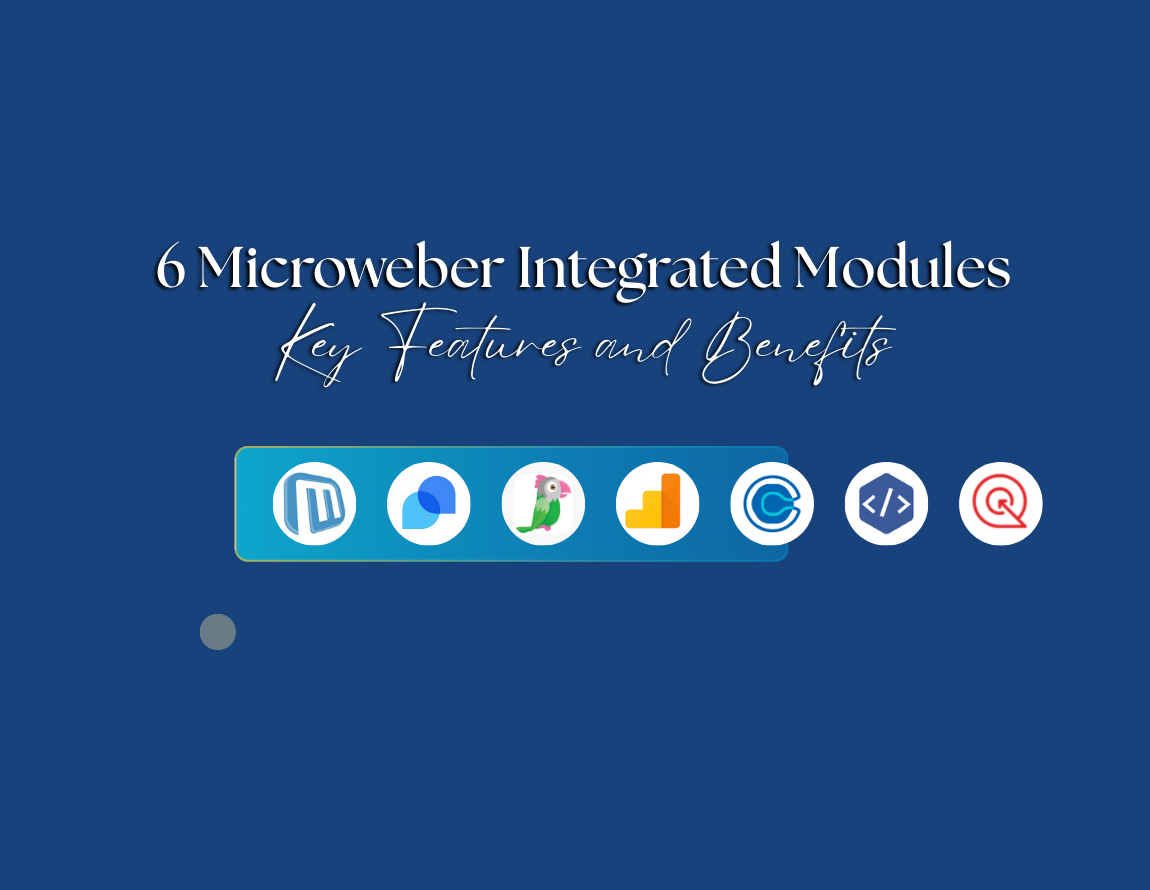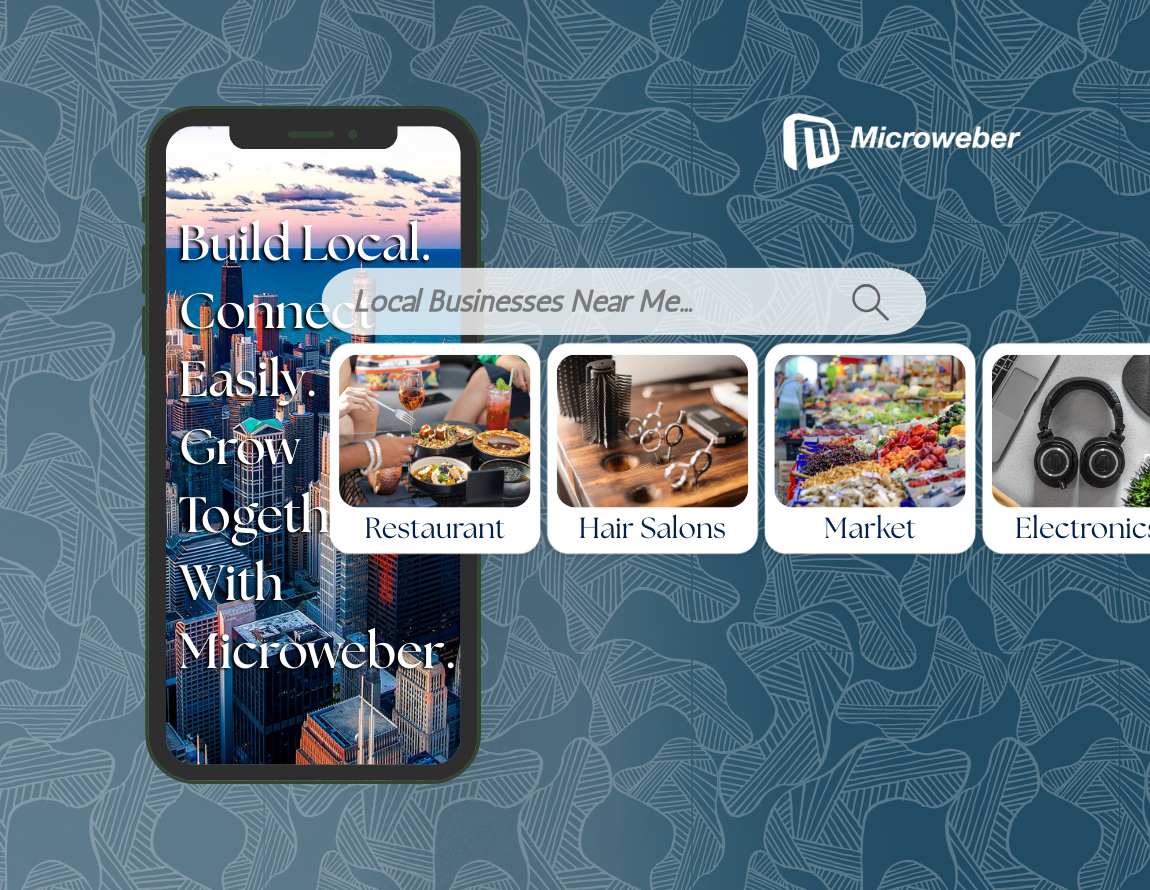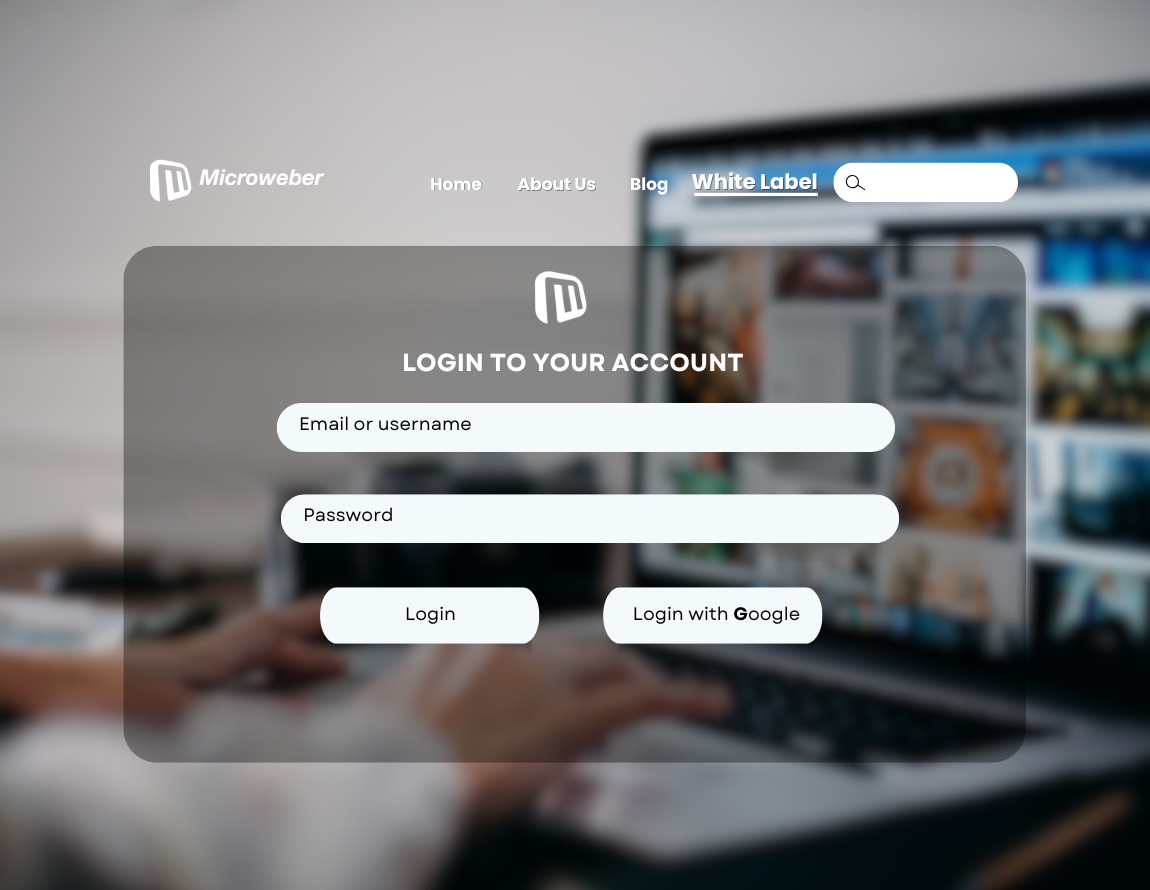Shield Your Small Business: Microweber’s Cybersecurity Tools Explained
Posted on: December 09, 2024 Updated on: December 09, 2024 by Nada Allam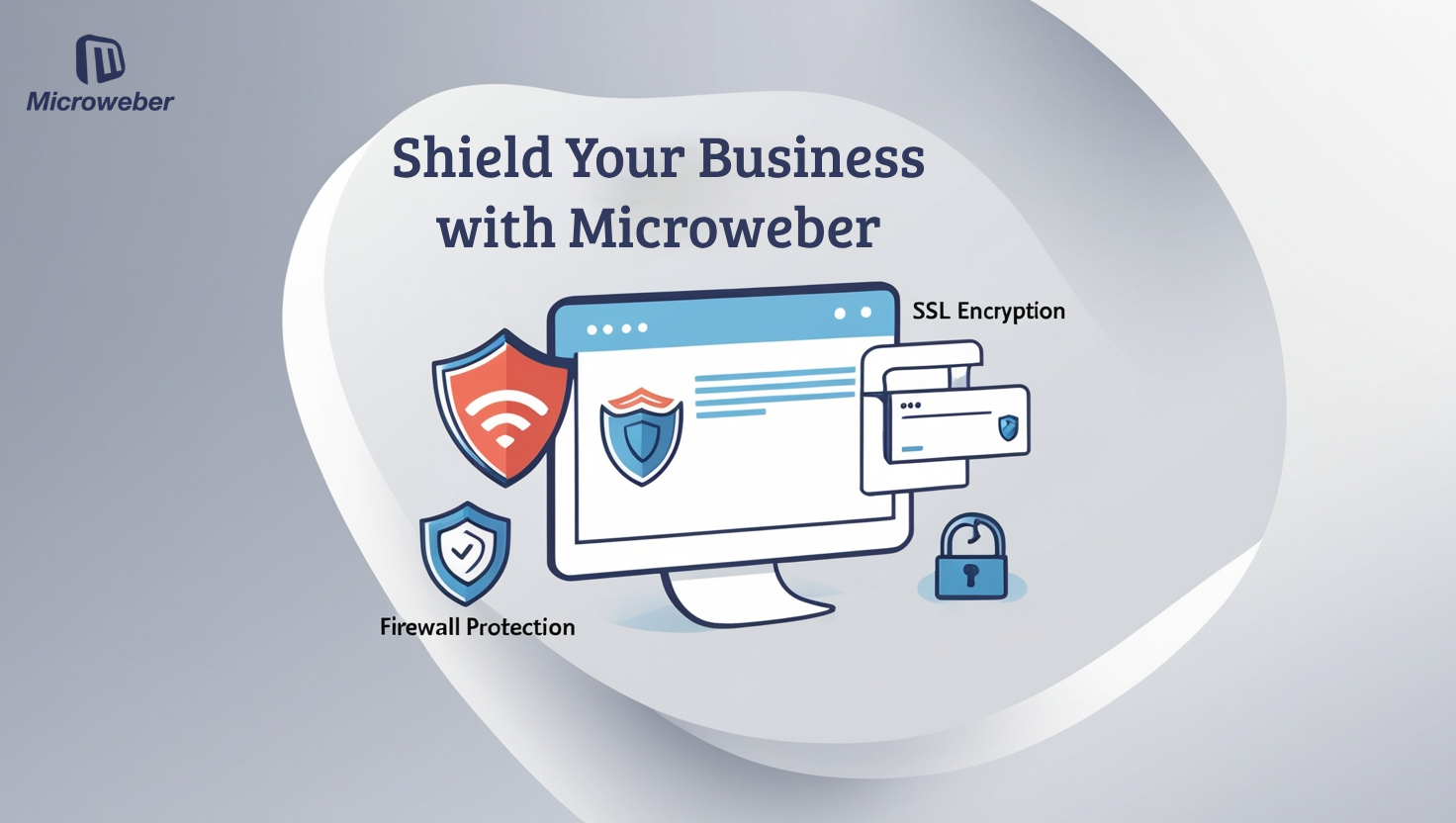 Do you know that small businesses are the biggest targets for cyberattacks? In the digital-first world, your website is much more than a web presence; it is the heart of your brand, the vault for customer data, and the powerhouse driving your transactions.
Do you know that small businesses are the biggest targets for cyberattacks? In the digital-first world, your website is much more than a web presence; it is the heart of your brand, the vault for customer data, and the powerhouse driving your transactions.
But here's the challenge: cybercriminals are getting more crafty, and without proper defenses, even the tiniest breach can have really terrible consequences. From ransomware to phishing scams, the threats are both real and proliferating.
Microweber has a solution for small businesses, merging intuitive website building with advanced security features. Built-in firewalls, secure backups, SSL encryption, and many more. Microweber system is designed to protect your business from cyber threats while supporting its growth.
Take full control over your online security now. Let's see some of the challenges faced by small businesses and how Microweber is ready to protect and empower your digital presence.
Understanding Data Breaches: A Significant Risk for Small Enterprises
A data breach can happen to anyone; however, small businesses are easy prey. Such enterprises don't have the resources that might ensure good security measures to counter the hackers.
Microweber tackles this head-on with features like:
Firewall Protection: It will block unauthorized access, and thus your sensitive data is protected.
Secure Backups: If there's an instance of a breach, know that the automated backups help recover from it without the loss of valuable information.
SSL Encryption: Ensures data in transit remains confidential and secure.
Microweber doesn't only keep your data safe but also saves your reputation-which costs the world to any small-scale business.
Identifying the Most Common Cyber Threats
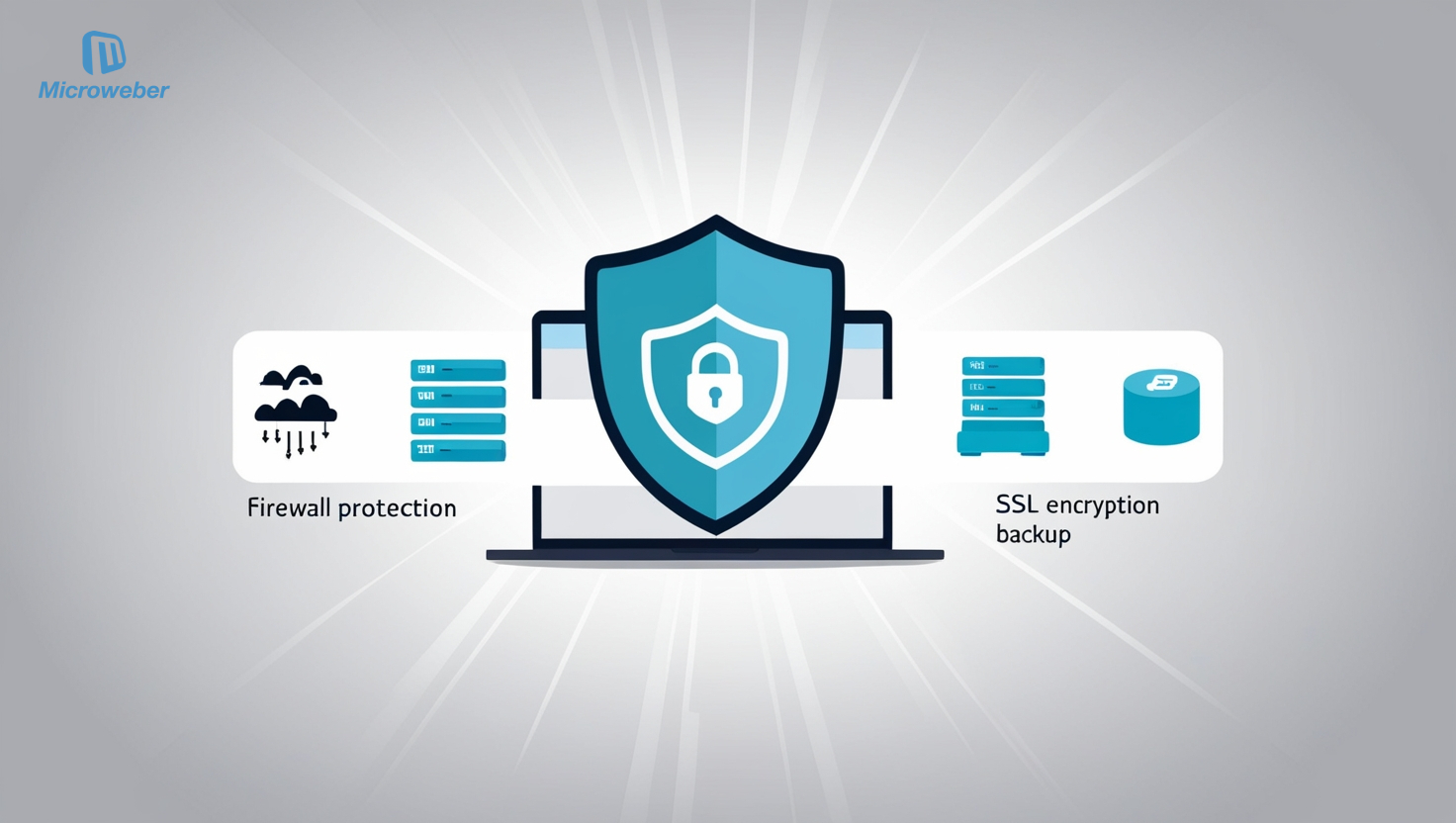 Small businesses are becoming increasingly targeted, with limited security resources the major cause. Let's break down the most common cyber threats and how Microweber's robust security features will keep your business safe.
Small businesses are becoming increasingly targeted, with limited security resources the major cause. Let's break down the most common cyber threats and how Microweber's robust security features will keep your business safe.
Data Breaches: Implications and Case Studies
A data breach could be a leak of sensitive information about customers and business transactions that may lead to financial losses and loss of faith. Small businesses are more exposed to these kinds of things due to fewer security resources.
Implications and Case Studies:
Data breaches devastated lots of companies by releasing confidential data of customers and proprietary business information. High-profile cases brought to the fore how even a tiny security gap is leading to bigger losses.
How Microweber Protects You:
Firewalls: Microweber firewalls block unauthorized access to your website with their powerful wall.
SSL Certificates: All data transferred will be encrypted, meaning that it will remain unreadable to unauthorized parties. This will not only protect sensitive information but also build trust among customers.
Understanding Malware: Types and Targets
Malware, in various forms, such as ransomware and spyware, can disrupt business operations, breach the security of sensitive data, and provide recoveries that are quite expensive.
Types and Targets:
- Ransomware locks critical files until a ransom is paid for their release.
- Spyware steals sensitive information without one's knowledge until it is too late.
How Malware Disrupts Small Businesses:
Operational downtime caused by an attack.
Potential data breaches.
Financial loss via recovery or ransom payments.
Microweber's Solution:
Regular Software Updates: Microweber's platform automatically applies updates, sealing off vulnerabilities that malware could exploit.
Secure Backups: Automated backups ensure businesses can restore operations quickly and effectively without paying a ransom in case malware strikes.
Phishing Schemes: Evolution and Prevention
Phishing attacks are a type of cyber attack that involves tricking users by making them reveal sensitive information, like passwords or bank details, through emails and websites.
Evolution of Phishing Scams:
The methods have been refined to a level where highly convincing, false communications target employees of small businesses.
Prevention Tips:
Training employees regarding suspicious emails
Email verification on a strict basis
Microweber's Defense:
Two-Factor Authentication (2FA): Even if a password is compromised, 2FA ensures unauthorized access is blocked.
Simplified management of the backend: Fewer exposure points for errors that hackers are looking for.
The Dangers of Ransomware: What Small Businesses Need to Know
Ransomware is an evolving threat that has locked business owners out of critical data until a ransom is paid.
Why Small Businesses are targets:
It also makes them attractive victims, since cybercriminals perceive small businesses as being unlikely to have robust defenses because of limited resources.
Microweber's Shield:
Automated Secure Backups: Even in the event of an attack, you will be able to restore your website without paying a ransom, minimizing downtime and financial loss.
DDoS Attacks: Disruption and Recovery
DDoS basically swamps a website with too much traffic so real users cannot access it.
Disruption and Recovery:
Sites go down for hours at a time, causing lost sales and diminished customer confidence.
Recovery from a DDoS attack may take long and expensive means.
Microweber's Advantage:
Firewall Protections: Screens out malicious traffic before such overwhelms your site to keep it always up for your customers.
Social Engineering: Techniques and Countermeasures
Social engineering attacks manipulate human psychology to influence employees into revealing confidential information.
Techniques Hackers Use:
Pretending to be a trusted source to gain access.
Using urgency or fear tactics to force quick decisions.
Microweber's Countermeasures:
Provides recommendations on how to increase employee awareness.
Offers tools for performing access controls, thereby limiting the impact of insider threats.
Why Small Businesses Are Prime Targets for Cybercriminals
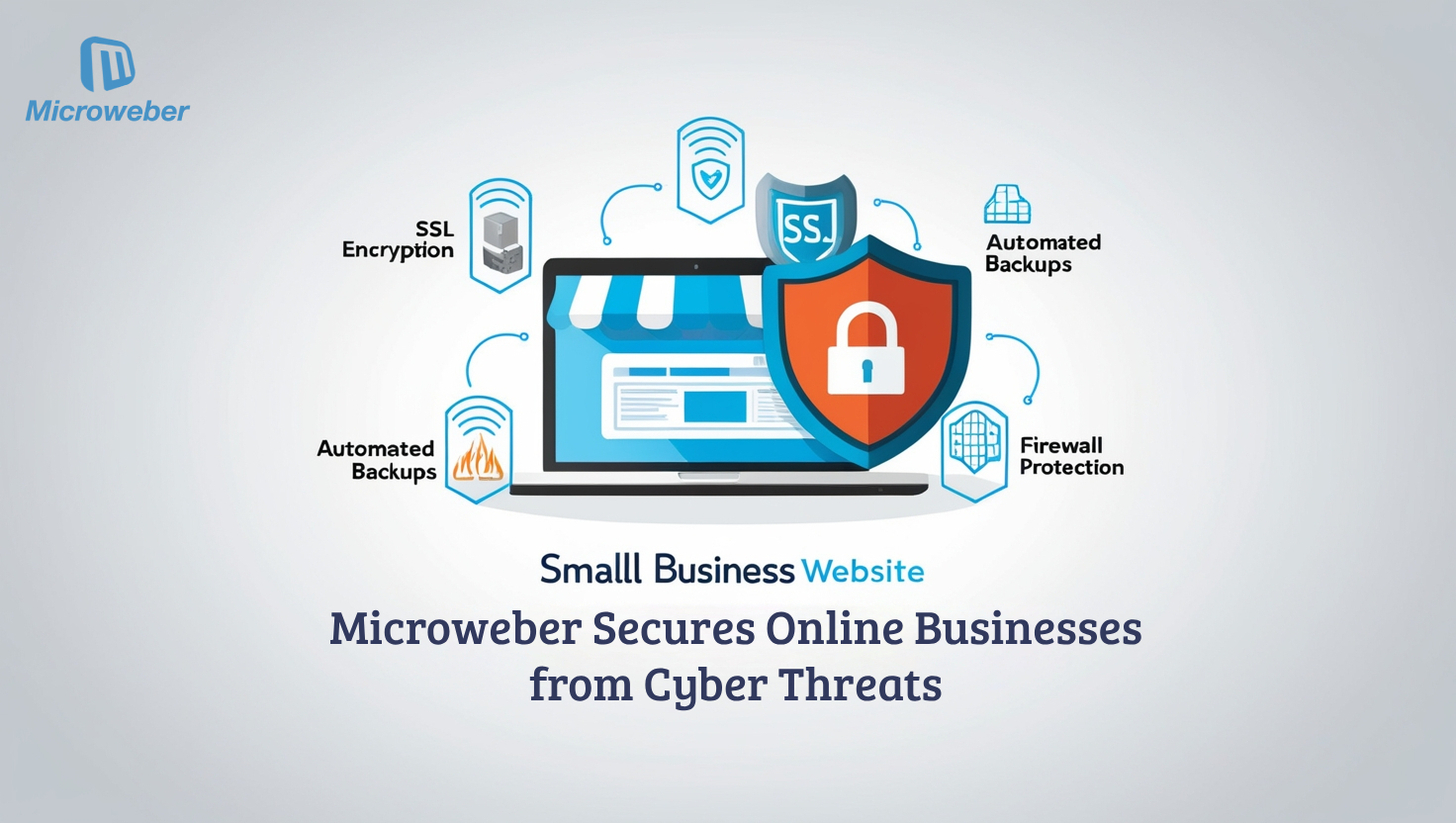 Let's dive deeper into these challenges and how Microweber can come to the rescue, offering you practical, cost-effective solutions to protect your small business online.
Let's dive deeper into these challenges and how Microweber can come to the rescue, offering you practical, cost-effective solutions to protect your small business online.
The Value of Customer Data: Why Hackers Are Interested
Small businesses sit on a goldmine of highly valued customer data. Be it personal details like email addresses or sensitive financial information, hackers know the treasures lying within small businesses.
The protection of this data is not just important; it's crucial for maintaining trust and avoiding catastrophic consequences.
How Microweber Helps:
You might be saying to yourself, "How would I ever protect all of this information without breaking the bank?" That's when Microweber provides SSL encryption to save your day.
It means that anything shared from your website with your client will keep them safe, and it becomes secure, especially when their purchase is taking place.
Whether it is inputting sensitive credit card data or registering for a newsletter, Microweber keeps everything locked away safely.
Resource Limitations: How Smaller Budgets Affect Cybersecurity
Not much, because as a small business, budgets are nearly always tight, and there won't be the scope for paying a dedicated IT security staff group nor investing in expensive cybersecurity software.
The idea of a further cost for online security, out of your already tight budgetary allocations, may sound scary. But here goes Microweber:
Microweber's Affordable Care:
Guess what? You don't have to spend a fortune to keep your website secure. Microweber offers powerful security features out of the box with no additional costs.
You get built-in security tools that protect against malicious attacks, data breaches, and unauthorized access without putting a strain on your wallet.
You get everything you need to keep your site secure without hiring any cybersecurity expert or spending thousands on separate security solutions.
That extra budget that would go into that can now be reinvested for better business growth.
Employee Awareness: The Weak Link in Cyber Defense
Here's a surprising fact: many security breaches happen because of human error. Whether it's a weak password, an open security hole, or falling for a phishing scam, employees often unknowingly create opportunities for hackers.
But don’t worry, Microweber’s got your back. The platform provides you with an Intuitive platform designed in a user-friendly manner. The easier it will be to manage by your team, the fewer chances are given for mistakes that might lead to breaches.
With an intuitive interface, every member of your team will go through the site easily, and therefore, it is very unlikely that they will miss some important setting regarding security or get overwhelmed with complex technical details.
Also, Microweber is designed with security in mind and follows clear, easy-to-understand directions that reduce the chances of human error.
All this so you will be able to focus more on growing your business and less on what could go wrong.
Microweber's Comprehensive Security Features
In this digital world, the protection of a website from cyber threats is indispensable. Microweber offers an array of security features to keep your site safe and secure. Let's go into the key tools:
Firewall Protection: Your First Line of Defense
A firewall is a security guard that blocks malicious attacks and lets good traffic in.
Why It Matters:
Prevents unauthorized access and keeps threats at bay.
Proactive protection 24/7.
Secure Backups: Ensuring Data Recovery
Automated backups mean your data is safe and recoverable if something goes wrong.
Why It's Important:
Quickly restore in case of data loss.
Minimizes downtime and keeps your site running smoothly.
SSL Encryption: Fostering Customer Confidence
Building Trust SSL encrypts sensitive data, like credit card information, to ensure secure transactions.
Other Benefits Include:
Boosting SEO with better rankings from Google.
Enhancing customer trust in a secure site.
Two-Factor Authentication: Strengthening Login Security
2FA includes an additional layer by including one more step of verification when logging in.
The Result:
Additional security even if your password is compromised.
Regular Software Updates: Closing Security Gaps
Automatic updates are handled with Microweber to keep your site safe against recent security vulnerabilities.
Why It's Important:
Keeps your website safe without any hassle.
Avoids exploitation resulting from outdated software.
Ready to Increase Your Website's Security?
With these strong security features, Microweber keeps your website secure from any kind of cyber danger, so you can freely develop your business. Be secure, stay successful!
Action Plan: Steps to Take After a Cybersecurity Breach
Even with the best defenses, breaches can happen.
Here's how to handle them:
Find the Problem: Employ Microweber's analytics tools to find vulnerabilities.
Recover Fast: Restore your site from secure backups.
Strengthen Security: Update passwords, enable 2FA, and make sure firewalls are correctly configured.
Learn and Adapt: Analyze the breach to prevent future incidents.
Fostering a Culture of Cybersecurity Awareness
Your tools are only as strong as the team using them.
Train Employees: Train to identify phishing emails and practice good secure behaviors.
Promote Cyber Hygiene: Encourage regular updates of passwords and sharing of files securely.
Create Policies: Draw out guidelines for data handling and permissions of access.
Conclusion
Cybersecurity is no longer optional; it's a must-have. Small businesses have different challenges, but Microweber's strong security features make protection available at affordable costs.
By leveraging firewalls, backups, SSL encryption, and more, you can focus on growing your business without fear.
With Microweber, securing your online store is as easy as setting it up. Peace of mind is just a click away!
FAQs
What is a cybersecurity threat?
A risk that could lead to unauthorized access, data theft, or operational disruption.
Why are small businesses targeted?
They often lack the resources for advanced security, making them easier to exploit.
How does Microweber protect small businesses?
With firewalls, backups, SSL encryption, and regular updates to prevent cyberattacks.
What should I do If my website is hacked?
Recover your data using Microweber’s secure backups and analyze the breach to strengthen your defenses.
How can I train my team on cybersecurity?
Start with phishing awareness and encourage using tools like two-factor authentication.


